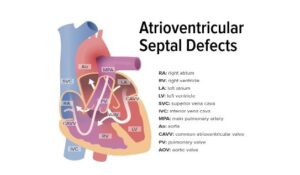Introduction
A leaky heart valve, also known as valvular regurgitation, occurs when one or more of the heart’s valves fail to close tightly. This results in blood leaking backward through the valve, compromising the heart’s efficiency. While this condition can be present at birth (congenital), it can also develop later in life due to various factors.
In this comprehensive article, we will explore the causes of a leaky heart valve, shedding light on the underlying factors that contribute to its occurrence. Understanding these causes is crucial for early detection, proper diagnosis, and the implementation of appropriate treatment strategies.
Causes of Leaky Heart Valve
There are several factors that can contribute to the development of a leaky heart valve:
Infective Endocarditis
Infective endocarditis, a bacterial or fungal infection of the inner lining of the heart chambers and valves, can cause damage to the heart valves. The infection weakens the valve structure, impairing its ability to close properly and leading to regurgitation.
Degenerative Valve Disease
Degenerative valve disease is a common cause of valve regurgitation, especially in older individuals. Over time, wear and tear can lead to valve deterioration, resulting in leakage. This condition is often associated with aging and can affect any of the heart valves.
Rheumatic Heart Disease
Rheumatic fever, a complication of untreated strep throat or scarlet fever, can cause rheumatic heart disease. This condition can damage the heart valves, leading to regurgitation. Rheumatic heart disease is more prevalent in developing countries where access to proper medical care is limited.
Heart Attack
A heart attack can cause damage to the heart muscle, including the valves. The loss of muscle tone and scarring can affect the valve’s proper closure, resulting in valve incompetence.
Congenital Heart Defects
Some individuals are born with structural abnormalities in their heart valves. These congenital heart defects can include malformed or insufficiently developed valves, making them prone to regurgitation.
Connective Tissue Disorders
Certain connective tissue disorders, such as Marfan syndrome and Ehlers-Danlos syndrome, can affect the strength and elasticity of the heart valves. This can lead to valve leakage and other cardiac complications.
Symptoms and Diagnosis

The symptoms of a leaky heart valve can vary depending on the severity of the regurgitation and the valve affected. In some cases, individuals may not experience any noticeable symptoms. However, when symptoms do occur, they may include:
– Fatigue and weakness
– Shortness of breath, especially during physical activity or when lying flat
– Irregular heartbeat or palpitations
– Swollen ankles, feet, or abdomen
– Dizziness or fainting
If you experience any of these symptoms, it is important to consult a healthcare professional for an accurate diagnosis. The diagnosis of a leaky heart valve typically involves:
– Medical history review
– Physical examination, including listening to the heart sounds with a stethoscope
– Echocardiogram, an ultrasound of the heart, to assess the structure and function of the valves
– Other diagnostic tests such as electrocardiogram (ECG) and cardiac MRI may be performed to provide further information about the heart’s condition.
Conclusion
In conclusion, a leaky heart valve can have various causes, including congenital defects, infections, degenerative changes, and other underlying heart conditions. Common risk factors such as age, family history, and certain medical conditions increase the likelihood of developing this condition. Additionally, triggers like infections and lifestyle factors can contribute to the progression of valve regurgitation.



